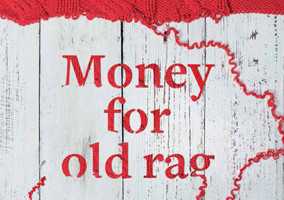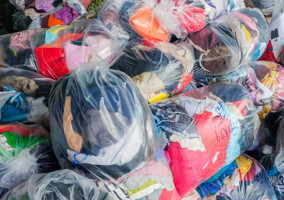The majority of charity clothing collections across the UK are unlicensed, according to a complaint to the Fundraising Regulator - something which could be costing the sector tens of millions.
A special feature on clothing collections appears in today's issue of Fundraising Magazine. As part of that feature Michael Lomotey, director of charity bag collection company Clothes Aid, told Fundraising Magazine “more than 60 per cent” of all charity bag collections undertaken in the UK are being done so by unlicensed “bogus operators”.
Lomotey said his staff had personally witnessed hundreds of unlicensed collections, many involving criminal activity. This suggests that many thousands of unlicensed collections are taking place each year.
The charity sector made tens of millions from the sale of collected clothes last year. If fraudulent collections are at the scale Lomotey suggests, they could be costing the sector more than £100m a year.
The British Heart Foundation has previously estimated that its losses alone were as much as £3m a year. Clothes Aid said "bogus operators" could be costing its 12 charity partners more than £1.1m a year in lost income.
Problems include bogus collectors pretending to distribute charity bags, unlicensed partnerships in which collectors take advantage of smaller charities, and outright theft of legitimately distributed bags.
The problem is growing worse as the price of recycled clothing, or rag, continues to rise. But charities have complained for a long time that regulators, councils and the police are failing to enforce the law.
There are also concerns that charity clothing collections are being run by organised criminals. Clothes Aid said its operators witnessed many "criminal incidents" and there are concerns that bogus clothing collections may be using slaves trafficked from Eastern Europe, following an arrest in the North East earlier this year.
The Textile Recycling Association has warned that clothing crime "is a national issue" and has called for a register of licensed collectors.
But Lomotey said that little has changed with regards to cracking down on unlicensed operators, since Clothes Aid wrote to the Fundraising Regulator in January last year.
Clothes Aid's letter addressed to Lord Grade of Yarmouth, chair of the Fundraising Regulator, and written on behalf of the collection organisation by law firm Bates Wells Braithwaite, says 770 individual cases of unlicensed collections were personally witnessed by Clothes Aid employees between 2013 and 2016.
"Our client highlights that these records show only collections that occur at the same time as licensed Clothes Aid collections," the letter said. "Therefore, Clothes Aid considers that it is quite safe to extrapolate that, nationally, many more collections are illegal."
At the time, the Fundraising Regulator said the matter was “an issue for the police”. However, it has since clarified that its remit “covers clothing collection bags where the collection is carried out on behalf of a charity, or the company acts a commercial participator”.
‘Crooks are coming out of the woodwork again’
Lomotey says the sector has allowed unlicensed operators to continue to collect bags under the auspices of charity and sell them on for profit while giving the bare minimum back to the cause.
“It’s been an issue for many years," he said. "There’s been problems with theft; problems with serious and organised networks of people stealing donations. We got so far with it, but there wasn’t enough clamping down. We took our eye off the ball, and what we’ve seen now is a bit of a resurgence.
“The crooks are coming back out of the woodwork, and do you know why? Because there’s not enough enforcement of the regulations.”
|
Related Articles












